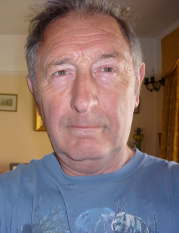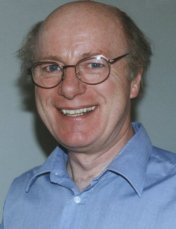| RSGB International Sprint Contests | ||||||
These contests were originally sponsored by the EU Sprint Gang. The RSGB Contest Committee is now running the Sprints with the agreement of the previous organisers. |
||||||
|
||||||
| 1(a) Spring Sprints | CW: | 9 April 2016 (the 2nd Saturday in April) | Time: | 17:00 - 21:00 UTC | ||
| SSB: | 16 April 2016 (the 3rd Saturday in April) | |||||
| 1(b) Autumn Sprints | CW: | Time: | 17:00 - 21:00 UTC | |||
| SSB: | 5 November 2016 (the 1st Saturday in November) | |||||
| 1(c) Contacts: | European stations may work everybody; stations outside Europe may work only European stations | |||||
| 1(d) Exchange | Format: | The Other Stationís Callsign Your Callsign Your serial number starting from 001 (RST is not required) Your name or nickname (minimum of two letters) NOTE: You may send the information in any order. |
||||
| Note: | Both stations must repeat both callsigns in the exchange A valid exchange is: "G0FCT 118 NICK de G4FAL" "G0FCT 118 NICK" is NOT a valid exchange |
|||||
[nominal centre |
CW: | 3510 to 3560 [3550] 7000 to 7040 [7025] 14000 to 14060 [14040] |
||||
| SSB: | 3602 to 3650 and 3702 to 3775 [3625] 7052 to 7100 and 7132 to 7200 [7160] 14125 to 14297 [14250] |
|||||
| If you initiate a call (by sending CQ, QRZ, up 2 kHz etc.), you are permitted to work ONLY one station on the same frequency. You must then move AT LEAST 2 kHz before you call another station, or before you may initiate a call again (CQ, QRZ, up 2 kHz? etc). | ||||||
| RSGB HF General Rules do not apply in this contest. | ||||||
|
||||||
| 2(a) Entrants | All entrants must be Single-Operator. QSO alerting assistance is allowed
-- this includes DX Cluster, local or remote Skimmer and Skimmer-like technology, and Internet-based systems, but exchanging
QSO information, making of skeds, self-spotting and asking to be spotted are not allowed.
There is no Multi Operator section. |
|||||
| 2(b) Transmission | Only one signal may be transmitted at any time. Each operator may use only ONE name during each Sprint. |
|||||
| Entrants in the United Kingdom and Crown Dependencies who hold a valid Ofcom NoV may use Special Contest Call Signs (SCC). | ||||||
| 2(d) Sections | 100 W - 1500 W, or as limited by licence conditions | |||||
| Low Power (L): | 100 W maximum | |||||
| QRP (Q): | 5 W maximum | |||||
|
||||||
| 3(a) Scoring system | Scoring: | One point per valid contact. The final score is the total number of QSOs. |
||||
| Contacts: | Valid contacts are QSOs correctly logged and confirmed. If the exchange is copied incorrectly, that operator scores zero points. In case of miscopied callsigns, both stations score zero points for that QSO. |
|||||
| 3(b) Logs | Cabrillo: | Logs must be in Cabrillo format. Examples of logs for these contests. |
||||
| Entries: | Logs must be submitted online within seven days. So for a contest on the 15th April, for example, the deadline is 23:59:59 on the 22nd April. | |||||
| Web Input: | Entrants who do not use computer logging are encouraged to use the manual Web-to-Cabrillo online forms to enter contact data from their paper logs. | |||||
|
||||||
| 4(a) Score Tabulation | A Separate Table is shown for each Section in each of the four contests. A Combined Table is shown after the Autumn Sprints, showing the total scores of all stations who entered three or more of the four Sprints during the year. | |||||
| 4(b) Certificates | Each Contest: | Certificates are issued to the 1st, 2nd and 3rd placed stations in each Section of
each Sprint and to the leading station in all 3 Sections in each country. Certificates are issued to the leading single band entry (80m, 40m or 20m) in each country in the 3 Sections of every Sprint. |
||||
| A certificate is awarded to the station in each Section who has the highest score in the Combined Table from any three of the four Sprint contests. To be eligible for this award an operator must enter at least three of the Sprint contests in the year. | ||||||
| 4(c) HF Championship | The scores in these contests from entrants in the United Kingdom and Crown Dependencies contribute to the RSGB HF Championship. | |||||
|
||||||
The "QSY rule" means that you can make a maximum of 2 QSOs before changing frequency. Let us imagine that you call G9ABC on 7022 kHz, after he has just worked EI5DI. He replies: ON0QQ G9ABC 037 BILL and you then send: G9ABC 078 WIM ON0QQ with his ackowledgement: R TU Why do you and Bill send the information in a different order? Because another station is probably listening, waiting to make a QSO with ON0QQ or G9ABC. How does he know whether G9ABC or ON0QQ is then waiting for another call? If he hears a callsign at the end of the exchange, that is the station who now has the frequency. So it is advantageous for you to send your callsign last, then stations on frequency know you are the person waiting for another call. If we listen for a few minutes on 7022, we might hear:
G9ABC TEST PLEASE! Wait one second for the acknowledgement of the previous QSO (TU, R, 73, Thanks, Roger, Good Luck, etc.) before sending your callsign. On CW, you can program two memories in your computer logging software so that they send the information in two different ways. On SSB, you need to remember to change the order when you give the exchange. By using this system, you will speed up your QSO rate, and reduce QRM from people who call you but then discover that you have already worked. | ||||||
|
||||||
| CW Sprints: Mike, G3VYI | 
| |||||
| SSB Sprints: Ed, GW3SQX | 
| |||||
